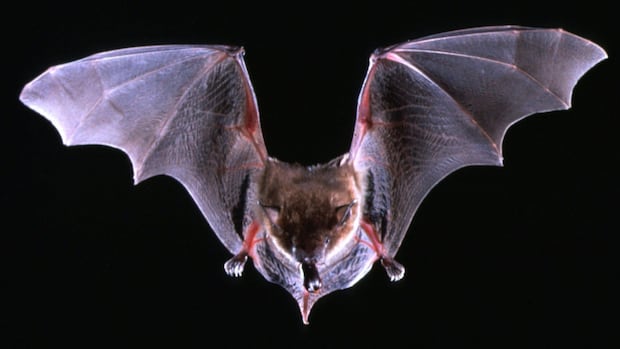A rabid bat found at a Brantford daycare last week has renewed concerns about bat-related rabies exposure in southern Ontario.
One child and one staff member came into contact with the infected bat, prompting a public health investigation and a temporary closure of the daycare. It reopened this week.
In Centre Wellington, a person began precautionary treatment for potential exposure last week after a rabid bat was found there.
Public health officials for Wellington-Dufferin-Guelph said bat-related incidents are on the rise this year. The number of investigations public health conducted last year related to bats was 47. So far for this year, that number is up to 61 bat-related investigations.
While cases of human rabies are rare, experts warn that bats are a common carrier of the virus and that even small bites or scratches can pose a serious risk if not treated.
To better understand how people can protect themselves and prevent bats from entering their homes, CBC Kitchener-Waterloo’s Joe Pavia spoke to Brock Fenton, a biology professor emeritus at Western University.
This interview has been edited for length and clarity.
Joe Pavia: Should humans be afraid of bats?
Brock Fenton: I would say instead of saying ‘Don’t be afraid of them’ [just] leave them alone, don’t handle them. So if you’re somewhere out and a bat comes over, don’t handle it. And if it’s in your grandmother’s bedroom, put on your ski glove before you grab it, something that the bat can’t bite through. Rabies is spread by biting. Rabid animals, including bats, have the rabies virus in their bloodstream. If their blood gets into your bloodstream, that’s bad news.
Joe Pavia: How does a bat become rabid?
Brock Fenton: We don’t know for sure. I think that bats certainly spread it among themselves and that’s probably where it comes from.
 Brock Fenton is a professor emeritus at Western University and a bat expert. (Western University)
Brock Fenton is a professor emeritus at Western University and a bat expert. (Western University)
Joe Pavia: How can people prevent bats from entering their home?
Brock Fenton: If it’s the occasional stray bat, there’s probably not very much you can do about it. It’s like trying to keep squirrels out of your garden, right? But if you’ve got bats living in your attic, you should take steps to get rid of them. That means getting in touch with somebody who does animal control.
What they do is they block up the openings the bats would use. So if you’ve got a bedroom or bathroom and you have a fan, but there’s no screen on it, that immediately allows the bat to get in because bats don’t have the equipment to make openings. They have to use existing openings.
Joe Pavia: Are bat boxes effective?
Brock Fenton: Its pretty hard to tell what bats like as a place to live. I’ve put up lots of bat boxes but I’ve never had any move into them. I suspect they’re much choosier about their real estate.
Joe Pavia: Why are bats so important to the ecosystem?
Brock Fenton: They occur pretty much everywhere in the world. They consume a lot of insects because most of them are insect eaters. All of the Canadian species are insect eaters. In the tropics, bats also pollinate plants, so they’re also important in agriculture.
My great love of bats just has to do with the fact that they’re so lovely as a teaching animal. There’s so much about them we don’t know and people are usually intrigued by things they don’t know. So that can keep you going for your whole career, and you’re still learning new things about bats. There’s all these things about bats that make them interesting and intriguing. Rabies is a sort of an unpleasant side effect.
LISTEN | Bats, southwestern Ontario’s other pollinator:
Windsor MorningBats, southwestern Ontario’s other pollinator
Windsor Morning host Amy Dodge spoke to Western University Professor Brock Fenton about the mysterious creatures and the role they play in our ecosystem.

